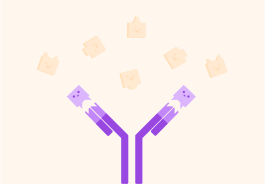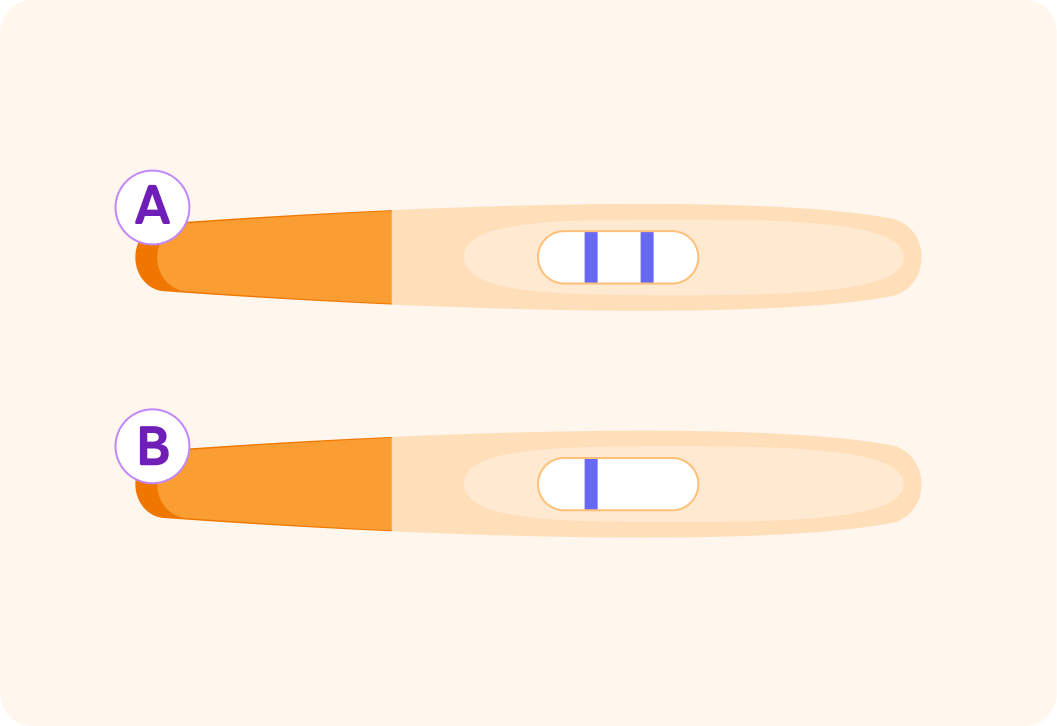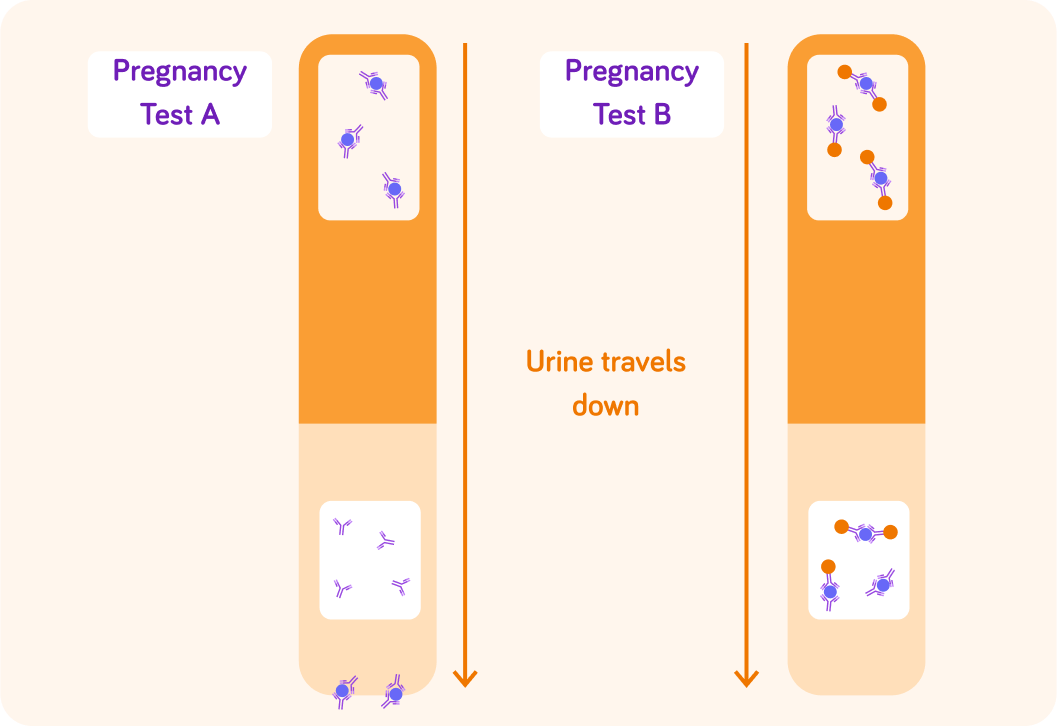YOU ARE LEARNING:
Commercial Uses of Antibodies: Pregnancy Testing

Commercial Uses of Antibodies: Pregnancy Testing
Monoclonal antibodies are used for pregnancy tests, as they can be developed to detect if a substance is present a woman's urine, which determines if she is pregnant or not.
The production of monoclonal antibodies can be used in a variety of different ways. This lesson will look at how they are used in pregnancy tests.
To recap, what are monoclonal antibodies?

A pregnancy test works by detecting a substance in a pregnant woman's urine, called HCG. What do you think HCG is?

Pregnancy tests work by a strip, detecting HCG in a woman's urine. The strip has monoclonal HCG antibodies on it. If the HCG hormone is present in the woman's urine, the test will react. How do we produce these antibodies for HCG that we put on the strip?

Why are antibodies against HCG produced when HCG is injected into a mouse?

Take a look at these two pregnancy tests. Do you know which test shows the woman is pregnant? Answer A or B.


So how does the test work? The end of the pregnancy test which is urinated on contains little blue beads that has HCG antibodies attached to them. What will the antibodies do if the hormone HCG is in the urine (test B)?
A) Allow the HCG hormone molecules to pass through. B) Attach to the antigens on the HCG hormone molecules.
Answer A or B.


The urine washes the beads down to the test strip. In the other end of the strip there is another set of antibodies that are "glued" onto the strip. What will they do if the woman is pregnant?
A) Turn blue. B) Allow the hormone to pass through. C) Attach to the hormones as well.
Answer A, B or C.


So if the woman is pregnant there will be a blue line forming.
The second set of antibodies is stuck down on the strip, so they can't wash away anywhere. That means the blue beads get trapped when the antibodies attach to them and the blue line forms.

If a woman is not pregnant (test A), the blue beads will still wash down the pregnancy test. What will happen at the second set of antibodies?
A) The blue beads will be stopped. B) The blue beads will wash through the strip. C) The second set of antibodies will turn white.
Answer A, B or C.


If a woman is not pregnant, why won't the antibodies in the test strip attach to the blue beads when they pass through?

